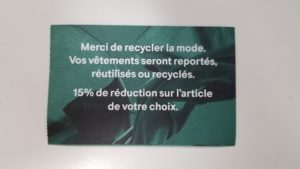Due to the hype of Toms shoes and Patagonia among others, we are all well aware that millennials are highly influenced by products with a cause. While one of the reasons that millennials are so concerned with environmental issues is the current context, it also has a lot to do with the fact that we are human.
In the 1940s, Abraham Maslow proposed a theory on human behavior in the form of a pyramid. As each level of the pyramid starts to be fulfilled, we, as humans, try to fulfill the higher levels. The first two levels are physiological and safety needs. In most of the developed world, a majority of citizens have access to shelter and food. This was not the case for the generations before as they had to live through the two World Wars and the Great Depression. Those two basic needs being fulfilled today allows millennials to climb to the live and belonging level. Thanks to the fact that families and friends have become more familiar and cost with each other as compared to the societal norms of the past several decades, most millennials can check off that level as well.
This brings us to the esteem level of the pyramid, suggesting that most millennials today are looking for ways to be respected by their peers (as well as respected by themselves). Whenever a millennial buys Toms shoes, they are announcing to the world that they are trying to help fight existing instances of poverty. Whenever a millennial wears Patagonia, they are announcing that they are helping fight against the destruction of public lands for capital gains. These acts are common among millennials as it gives them ego-gratification in return; it satisfies their need for acknowledgment.

H&M is hoping to jump on the ego-gratification wagon with its donation coupons. The message sent by this policy is that they care about sustainability and are doing something about it. What the policy is actually doing is bringing customers in stores and inviting them to buy a new piece of clothing. For every bag of clothing brought in to H&M, the potential customer gets a coupon for 15% off an article of clothing. Since the potential customer has donated their clothes, they are feeling very good about themselves. As a result, they have the feeling that they deserve a reward. And what easier way then simply buying a new piece of clothing (or two) while already in the store ? Not to mention that the potential customer is also feeling an exclusivity factor given that they ate better than their peers because they did a positive thing for society and they got rewarded for it.